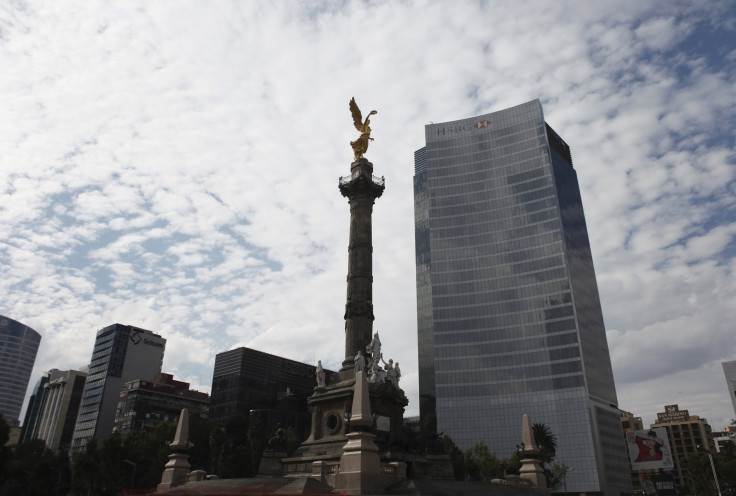Mexican Stock Exchange Having Record-Breaking Month on Bank Strength, Economic Confidence

Quietly, steadily and without much of the glitz and attention afforded its northern neighbor, the Mexican stock market has been on a tear this year.
On Tuesday, the blue chip IPC Index of the Mexican Bolsa closed up at 43,183.28, an all-time record. That milestone was reached a day after the IPC closed up over 43,000 points for the first time in its history Monday, a feat that itself happened after the bourse set price level records in the previous five sessions.
The age of Mexico being thought of as "a boring country and a boring story" by financiers are gone, José Manuel Allende, head of strategic planning for exchange operator Bolsa Mexicana de Valores SAB, told The Wall Street Journal recently.
"The feeling now is that the coming years are going to be our best in the last 20 years," Allende said.
Behind the Mexican stock exchange’s year-end run-up, several factors have been present. A re-balancing of the components of the IPC Index earlier this month triggered a buying frenzy in certain less popular issues, market analysts have pointed out. And inflows from investors looking to park some of their excess liquidity have helped.
But beyond technical factors, other see solid fundamentals. The Mexican peso has risen against the dollar this year, something that would usually depress stock prices in the local market. Instead the IPC is up over 11 percent for the year.
According to Mexican business magazine El Economista, the new government in Mexico is seen as being more pro-capital than the current administration -- despite the incoming PRI party's historically less pro-business stance than the outgoing PAN's -- something that is stoking investment in the markets.
“The men that make up the new economic cabinet and those that will be in charge of the government are inspiring confidence… most are professionals with ample experience, who, if they put themselves to the task, could deliver good results for Mexico,” the publication noted.
International experts agreed with that assessment. David Rees, an emerging markets economist for London-based Capital Economics, recently noted that “with the re-election of the PRI seemingly having ended the political deadlock that has hampered the economy’s development for more than a decade, we expect the onset of structural reforms to ensure that Mexico will perform relatively well over the coming years.”
Mexico’s economic performance is also a positive. While not stunning for a developing country, it is better than most of the rest of the world at some 4 percent expected yearly growth. Inflation is under control, and banks are seen as solidly capitalized. The rise in wages across Asia is eroding the competitiveness gap Chinese manufacturers might have over their Mexican counterparts.
Of course, there are many pitfalls that could affect the Mexican market, including the fact that volatile political events in the U.S. deeply affect results in local investment.
But unlike the U.S., one thing Mexico seems to have at the moment is an active and growing banking sector. Double-digit yearly growth is currently being seen in private commercial lending. A small real estate boom is under way. And consumers are increasingly using their credit cards to leverage up on consumer goods.
A visceral sign of just how good banks in Mexico have it at the moment: On Wednesday, even as the rest of the country goes about its daily business, the Mexican Bolsa will not set any records, as it will be closed for the day alongside the nation’s banks. If that kind of announcement were made regarding Greek banks, most would assume the banks are going on a holiday to prevent chaos in the midst of national insolvency. If that kind of statement were made of Spanish banks, most would think the banks are going on holiday to ward off violent threats to their employees and installations.
In Mexico, the banks are going on holiday to celebrate Bank Employee Day, a special day off awarded to those who work in the country’s financial sector.
© Copyright IBTimes 2025. All rights reserved.





















